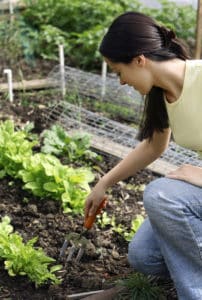Caring for a small garden has been shown to have a markedly positive impact on health and wellness, as the simple act of digging in the dirt while tending to the needs of growing plants is helpful in reducing stress. There is also the obvious benefit of being able to grow an endless array of vegetables for harvest at the absolute peak of deliciousness, all while being able to carefully select safe products for use in fertilizing the plants and controlling pests. Even though this seems like a small contribution in terms of the total benefit to the environment, the fact is that the impact is much more far-reaching than most people realize.
First, let’s talk about the health benefits. According to Dr. Raouf Farag, an obstetrician whose practice is located in New South Wales, it is much more preferable to consume produce that has not been exposed to harsh chemical fertilizers or potentially dangerous pesticides. This is especially the case when it comes to the time during pregnancy, and there are also some indications that early development may be adversely affected by repeated exposure to the chemicals used during agricultural production.
 While most studies have indicated that people can safely consume produce that has been treated with a wide range of chemicals, it is also important to consider the total environmental impact generated through the use of these chemicals and pesticides in producing fruits and vegetables. Water studies are increasingly showing higher accumulations of chemicals that may be dangerous for humans and the environment, so reducing the demand for mass production is a critical step when it comes to environmental sustainability.
While most studies have indicated that people can safely consume produce that has been treated with a wide range of chemicals, it is also important to consider the total environmental impact generated through the use of these chemicals and pesticides in producing fruits and vegetables. Water studies are increasingly showing higher accumulations of chemicals that may be dangerous for humans and the environment, so reducing the demand for mass production is a critical step when it comes to environmental sustainability.
One of ways to reduce demand for the mass production of fruits and vegetables is to take action by creating your own food supply in the form of a simple home garden. Arranged properly and supplemented with organic material, a small plot of land or a raised garden bed can yield more than enough food to keep a family well fed throughout each and every season. It may require quite a bit of effort to get started at first, but that effort is more than worthwhile considering the potential benefits for the environment and for you, the gardener.
So, if you want to reduce your carbon footprint, improve air and water quality while supplying your family with healthy and delicious fruits and vegetables, creating a small organic garden is a great first step to take. If everyone took the time to tend to a garden of their own, the positive impact on the environment would be significant and would greatly reduce the negative consequences caused by our reliance on many of the mass-production techniques used by the agricultural industry.

